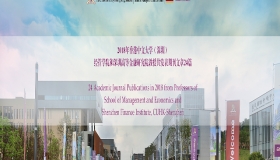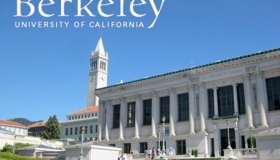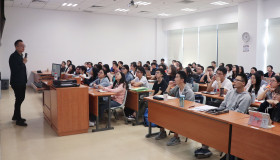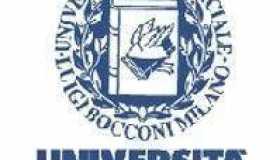Activity Review | Mostly OM 2019 Workshop Was Held at CUHK-Shenzhen

On May 31, over 400 participants from universities, academic fields and research institutes in the world gathered together. Prof. Yangsheng Xu, president of CUHK-Shenzhen, Prof. Jim Dai, dean of Institute for Data and Decision Analytics of CUHK-Shenzhen and Prof. Jian Chen, director of Department of Management Science and Engineering, Tsinghua University delivered opening speeches separately. Prof. Jim Dai extended a warm welcome to all of the guests and an expectation of the success of the conference. President Xu mentioned that although the history of our university was not long, we inherited the traditions from CUHK and enjoyed an infinite potential in future development. For the Greater Bay Area and CUHK-Shenzhen, Mostly OM was a significant platform for exchange and communication. Prof. Jian Chen introduced the history and convention of Mostly OM and extended heartfelt thanks to all parties for their support.

Prof. Yangsheng Xu, president of CUHK-Shenzhen
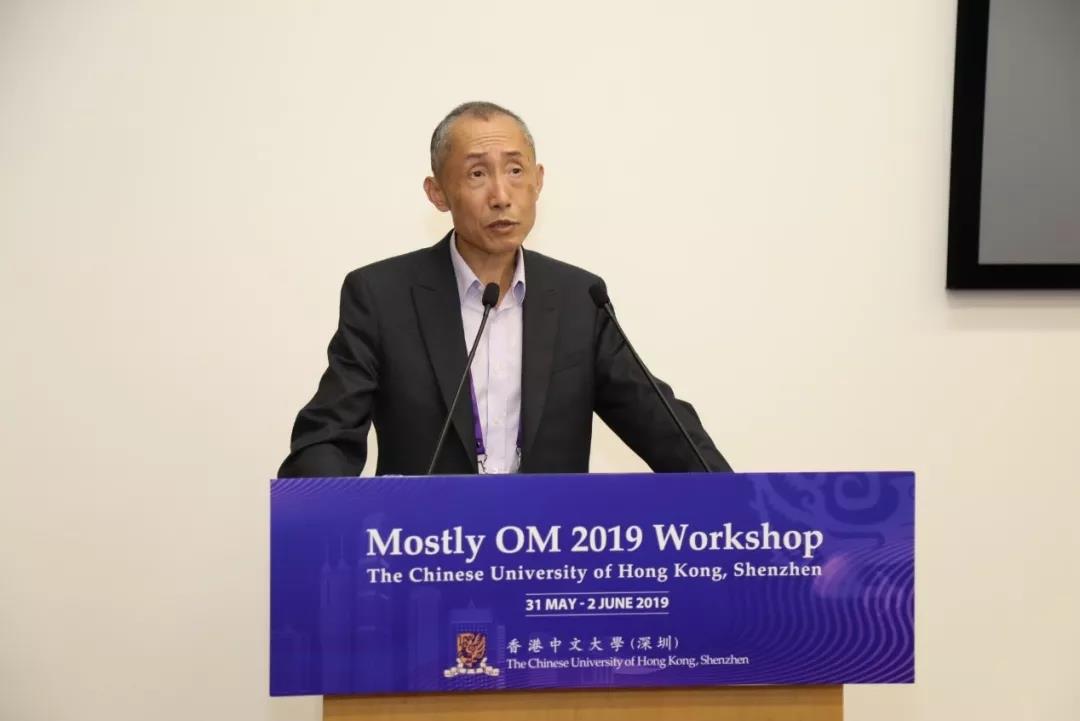
Prof. Jim Dai, dean of Institute for Data and Decision Analytics of CUHK-Shenzhen

Prof. Jian Chen, director of the Department of Management Science and Engineering, Tsinghua University
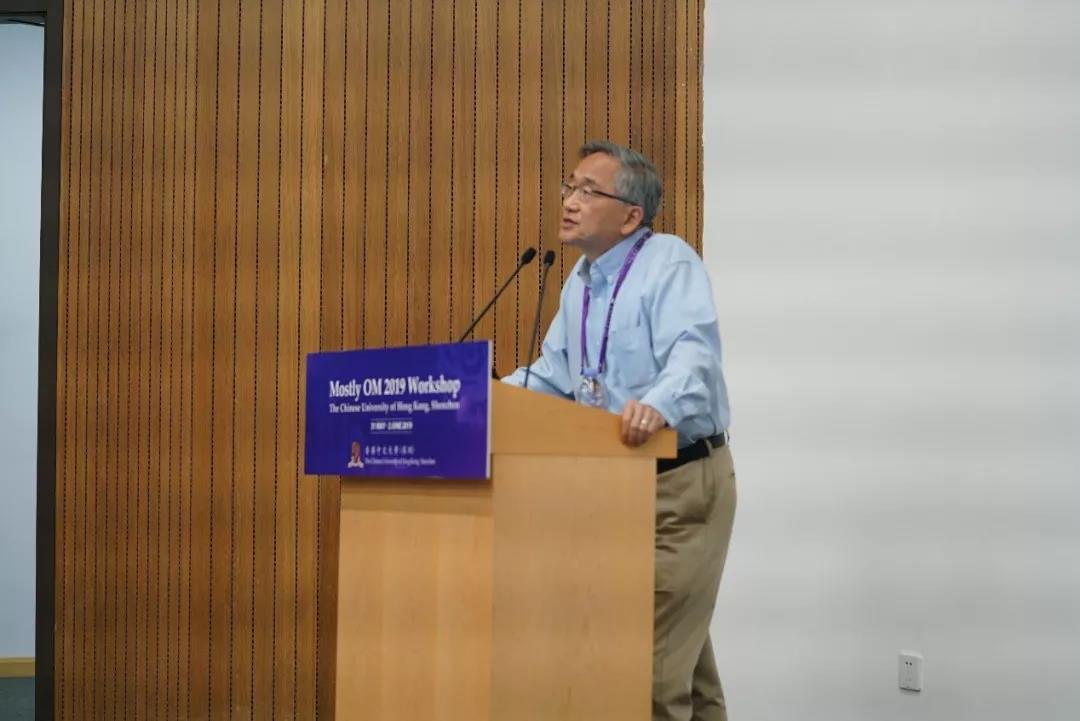
Prof. David Yao, co-chair of the Workshop, chair professor of Tsinghua University School of Economics and Management and chair professor of Piyasombatkul family foundation of Columbia University the USA
Prof. Dimitris Bertsimas from Massachusetts Institute of Technology gave a keynote speech, entitled “The Voice of Optimization”. He introduced OCT–H (optimal classification trees with hyperplanes), the most optimal method he believed. Firstly, he proposed the concept of interpretability and listed the common optimization methods, such as regression, CART, random forest and so on, which were featured by either high interpretability or performance. OCT–H, however, is an interpretable and performable optimal solution. Compared with the traditional black-box optimization model, it can formulate strategy by machine learning and then offer solutions. It thus is interpretable. With the examples of inventory management, he demonstrated that real-world optimization is parametric.

Prof. Dimitris Bertsimas from Massachusetts Institute of Technology

The speech of Prof. Costis Maglaras from Columbia University centered on “Observational Learning and Abandonment in Congested Systems”. He analyzed how users interact with a service system that is subject to congestion. Taking the queueing system as an example, he showed the Naor model, of which three key factors are observations of service time realizations, abandonments by other users and queue position. This model, however, has three simple hypotheses. Firstly, it is common to neglect policy interaction between users. Secondly, the consumed waiting time is sunk cost and thirdly the nearest inter-departure time is the only factor to be considered. In addition, Prof. Maglaras discussed how to apply the heuristic fluid model to serve large-scale systems.

Prof. Costis Maglaras from Columbia University
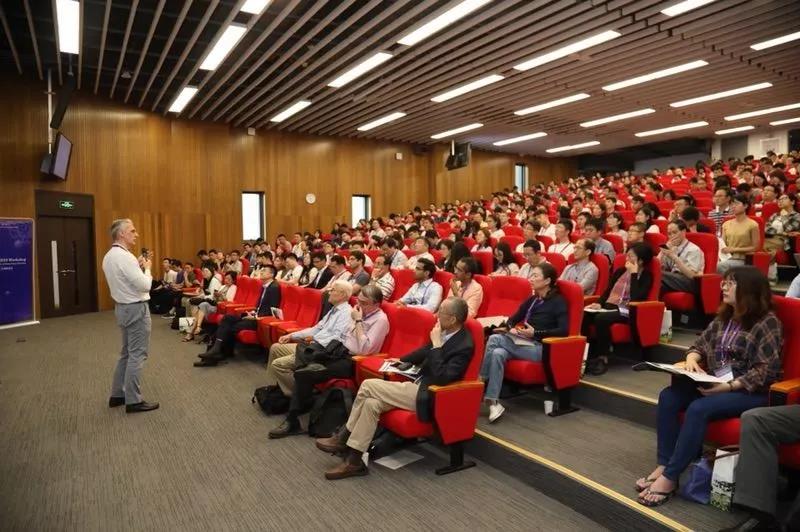
The topic of Prof. Yinyu Ye from Stanford University was “The Sample Complexity in Data-Driven Optimization”. He firstly introduced the sample complexity in reinforcement learning and stochastic game. The sample complexity refers to how many samples are sufficient and necessary to obtain an optimal policy (0.1-optimal policy with p>0.9). Near sample-optimal algorithm includes variance reduction and monotonicity analysis. Secondly, he explained average approximation with a sparsity-inducing penalty for high dimensional stochastic programming/learning. For regulated sample average approximation, he also introduced theory generalization and theory application, including high-dimensional statistical learning and deep neural network learning.

Prof. Zizhuo Wang from Data and Decision Analytics of CUHK-Shenzhen introduced Prof. Yinyu Ye

Prof. Yinyu Ye from Stanford University
Prof. David Simchi-Levi from Massachusetts Institute of Technology, as the first speaker on the second day, gave the speech of “Phase Transitions and Cyclic Phenomena in Bandits with Switching Constraints”. He firstly introduced regret, a concept which means the gradient between the revenue of those with full information and revenue of actual merchant, indicating the lost revenue caused by the lack of information. Regret, a function of times of price changes, decreases progressively and strictly. Prof. David Simchi-Levi then talked about two problems, multi-armed bandit problem and bandits with switching constraint on that basis. The bandits with switching constraint refer to limited adaptivity and limited switch. He further discussed the unit cost transformation in MAP, breakthroughs in MAP, regret equivalence between limited adaptivity and limited switch and general cost transformation. Prof. David Simchi-Levi concluded that there are phase transition and cyclic phenomena in regret optimization.

Prof. David Simchi-Levi from Massachusetts Institute of Technology
Prof. Shane Henderson from Cornell University gave a speech of “Under the Hood of Bike Sharing” to discuss the operation and design of the bike sharing system in New York. Based on the usage and return data of the system within 24 hours, Prof. Shane Henderson pointed out the obvious imbalance problem in the current system and further discussed the way to build up an optimization model. If each bike share station can offer the unlimited number of bikes, the process of bike renting and returning is shown as poisson distribution and is mutually independent. According to the calculation of the model, Prof. Shane Henderson pointed out said that for every station the cost function is convex function. Considering the difficulty to solve the imbalance problem merely by bike allocation, he further discussed the possibilities of station allocation. In the end, he introduced the Bike Angels Project, which is to encourage the user to return the bike in the appointed station with a reward. In this way, the cost will be reduced half by rebalancing the bike volume in the station.

Prof. Shane Henderson from Cornell University

Prof. Jim Dai, on behalf of CUHK-Shenzhen, gave a Chinese painting to Prof. Shane Henderson
Prof. Assaf Zeevi from Columbia University gave his speech of “Learning Theoretic Challenges in Operation”. In the speech, he demonstrated how the learning theory has an influence on operation research and how they produce a synergy effect. He analyzed five key factors: dynamic pricing, dynamic learning for consumer preferences, learning with contextual information, learning process under collective changing attention and stopping matching and learning. With these five factors, Prof. Assaf Zeevi also considered pricing mechanism, recommendation system, and substitution effect. He pointed out that the learning theory is synergetic with the operation theory. It means that the learning theory provides a series of tools to advance the technology of operation analysis and operation theory brings about questions to challenge the learning theory.

Prof. Assaf Zeevi from Columbia University



Prof. Jim Dai (in the middle), Prof. Yongbo Xiao from Tsinghua University (on the left) and Prof. Shilu Tong from SME, CUHK-Shenzhen

Prof. Peng Sun from Duke University (in the middle), Ph.D. Candidate Mingliu Chen (on the left) and Prof. Yongbo Xiao from Tsinghua University (on the right)
There were six forums during the conference and each forum has four parallel sessions, which focused on optimization, random process, network analysis, learning theory, resource allocation and various kinds of theory in the inventory system, public hygiene and capacity management. Experts and scholars in the field of operation management exchanged their ideas on the latest research development.





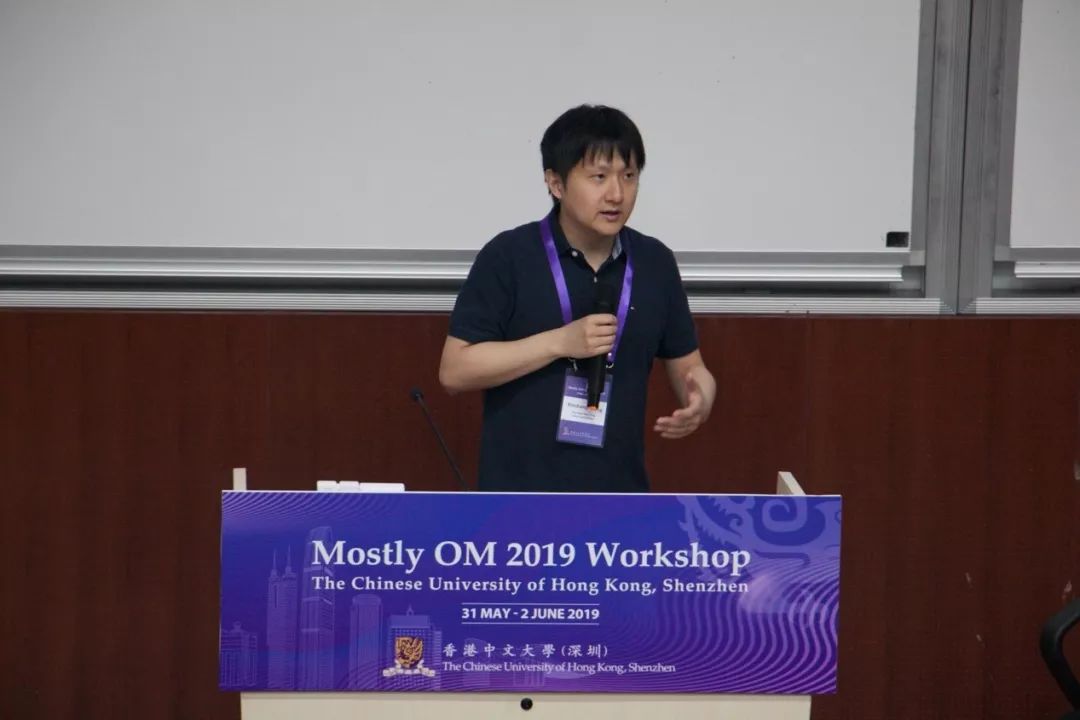

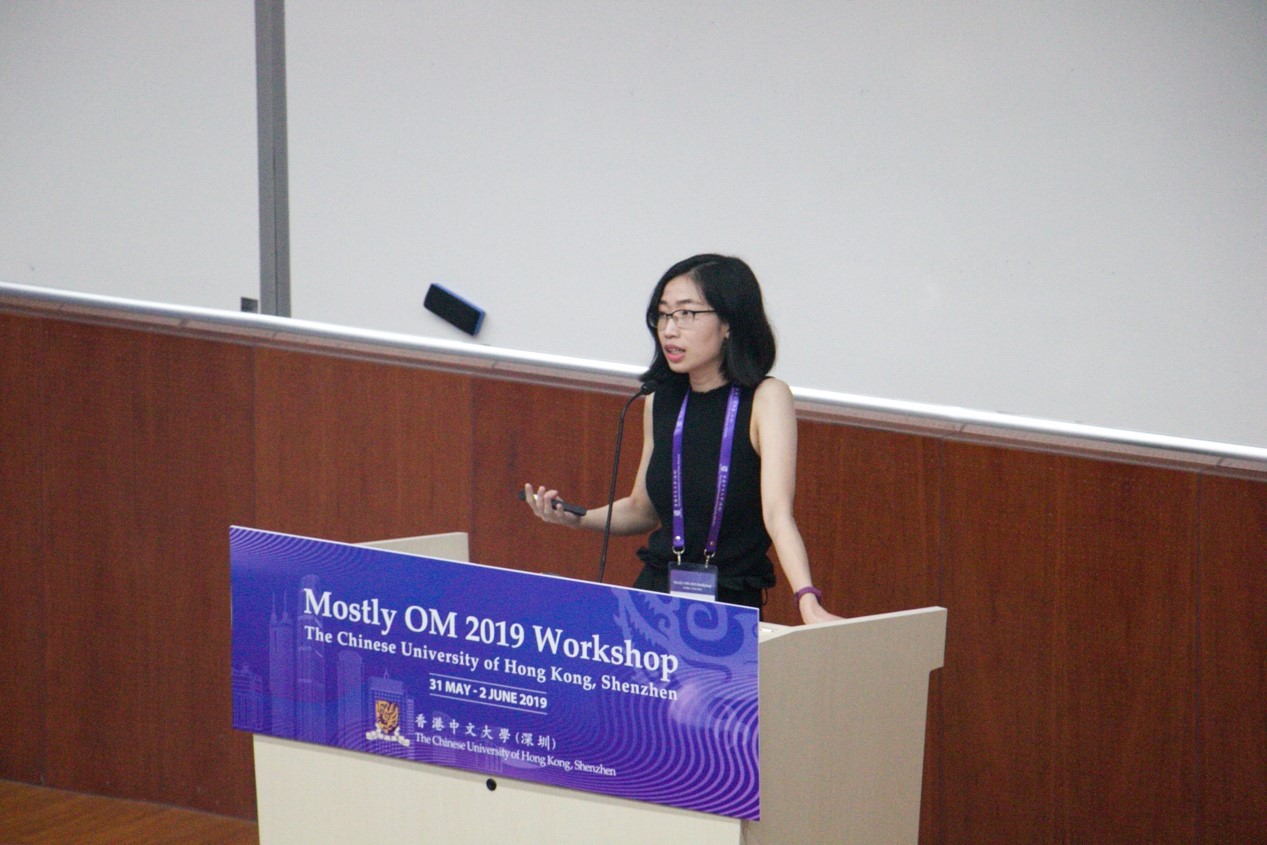









Parallel Sessions and Tea Break

